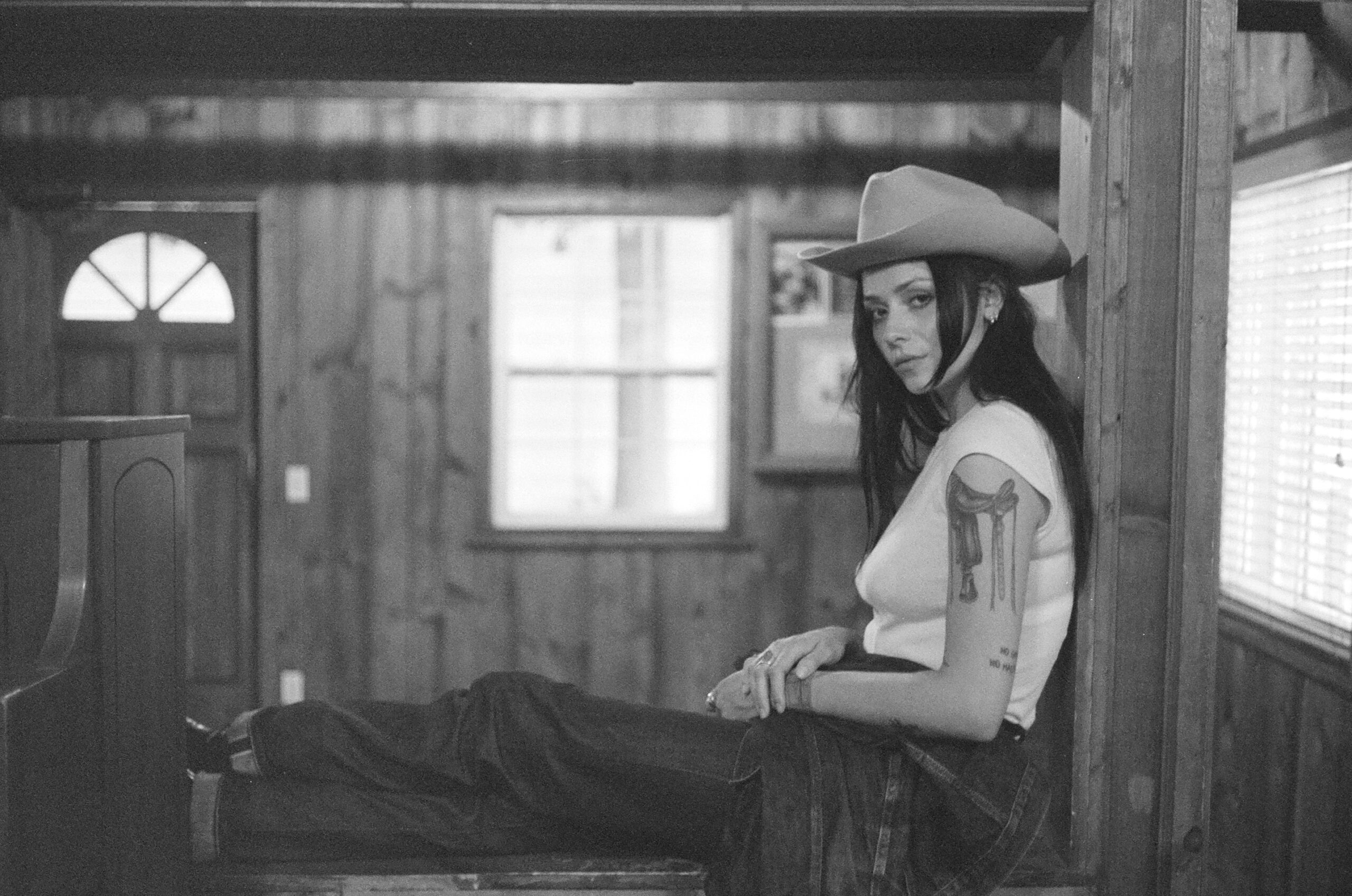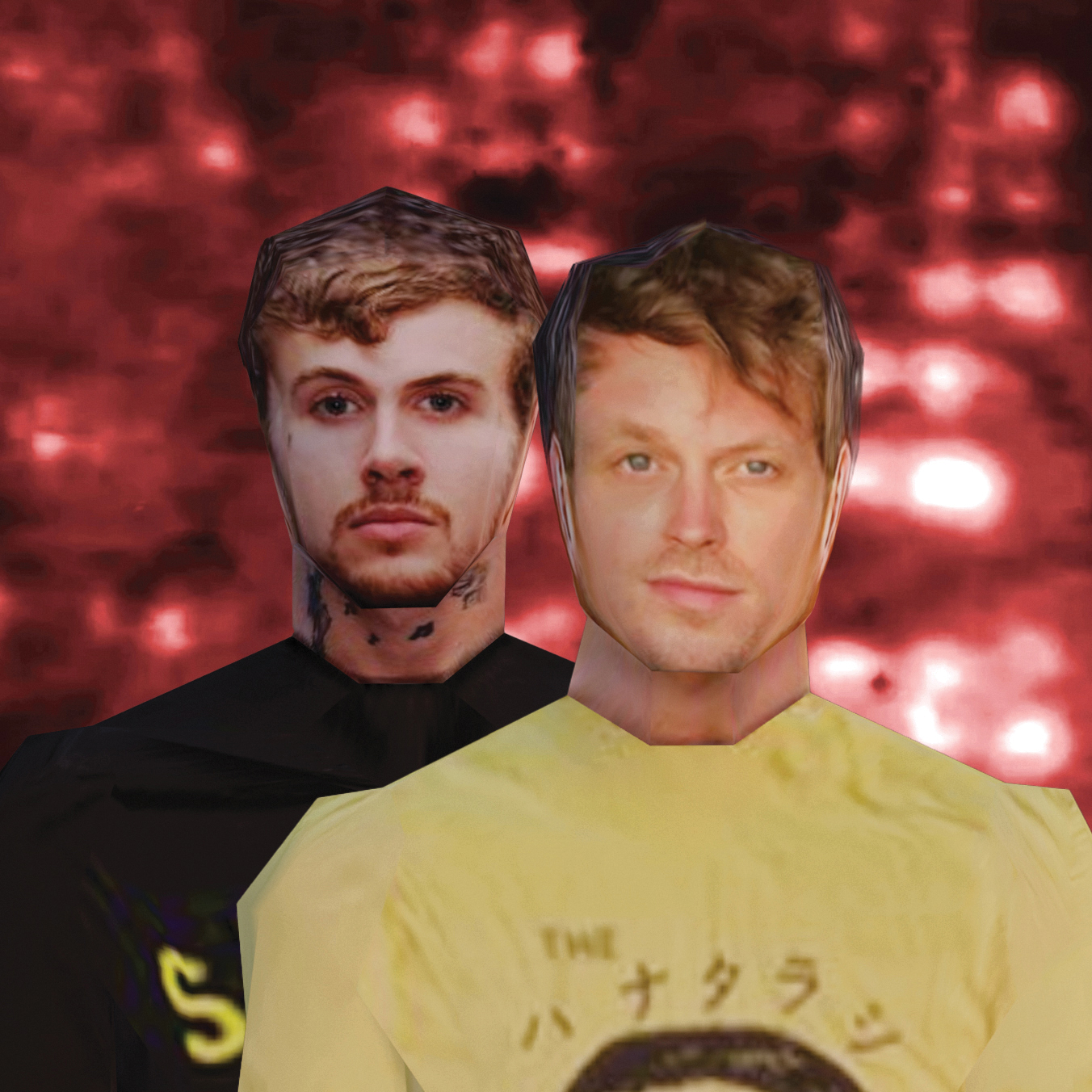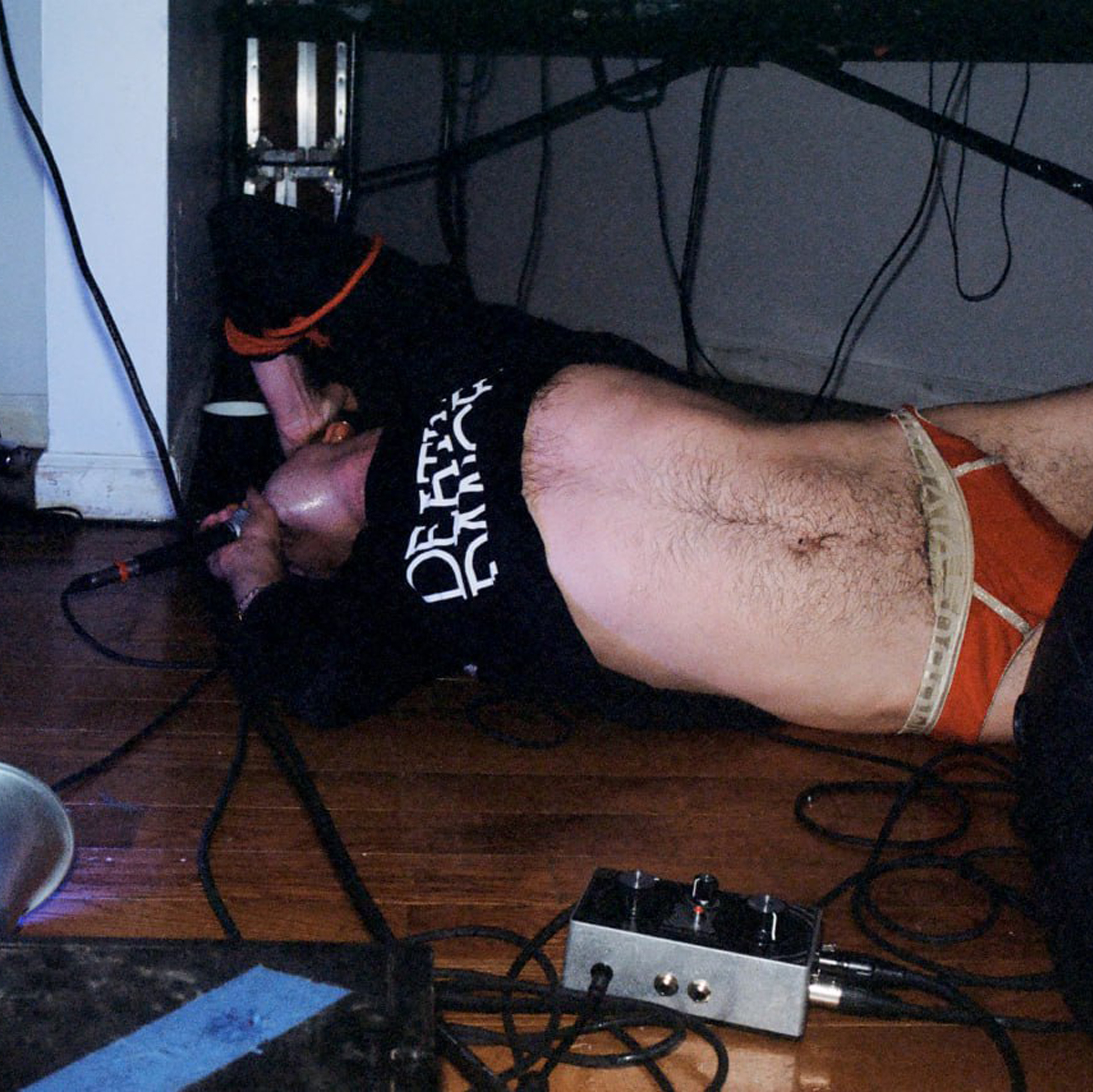Scout Dixon is a model, actress, screenwriter, and the lead singer of Low Pony, whose summer 2022 debut EP, the star-/shoegazing Ascetic Star, occasioned this interview later in the fall. What followed was a lengthy, free-wheeling convo on life and death, beginnings and ends, “depression” as an identity, the power of getting over yourself, and more. Scout is one of the loveliest and most talented artists around, a true lily of the field.
Photos by Josh Jové @nowayjove
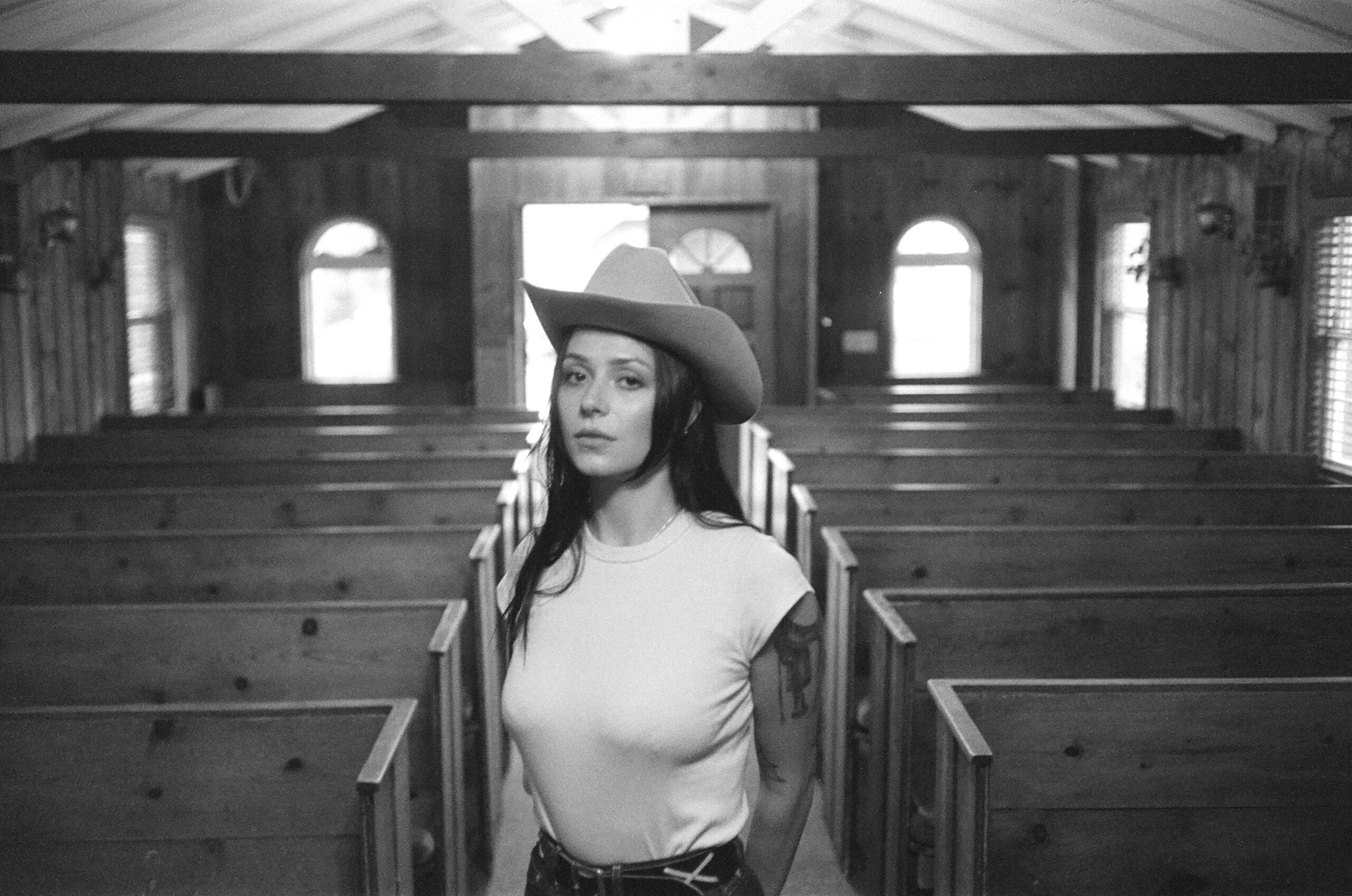
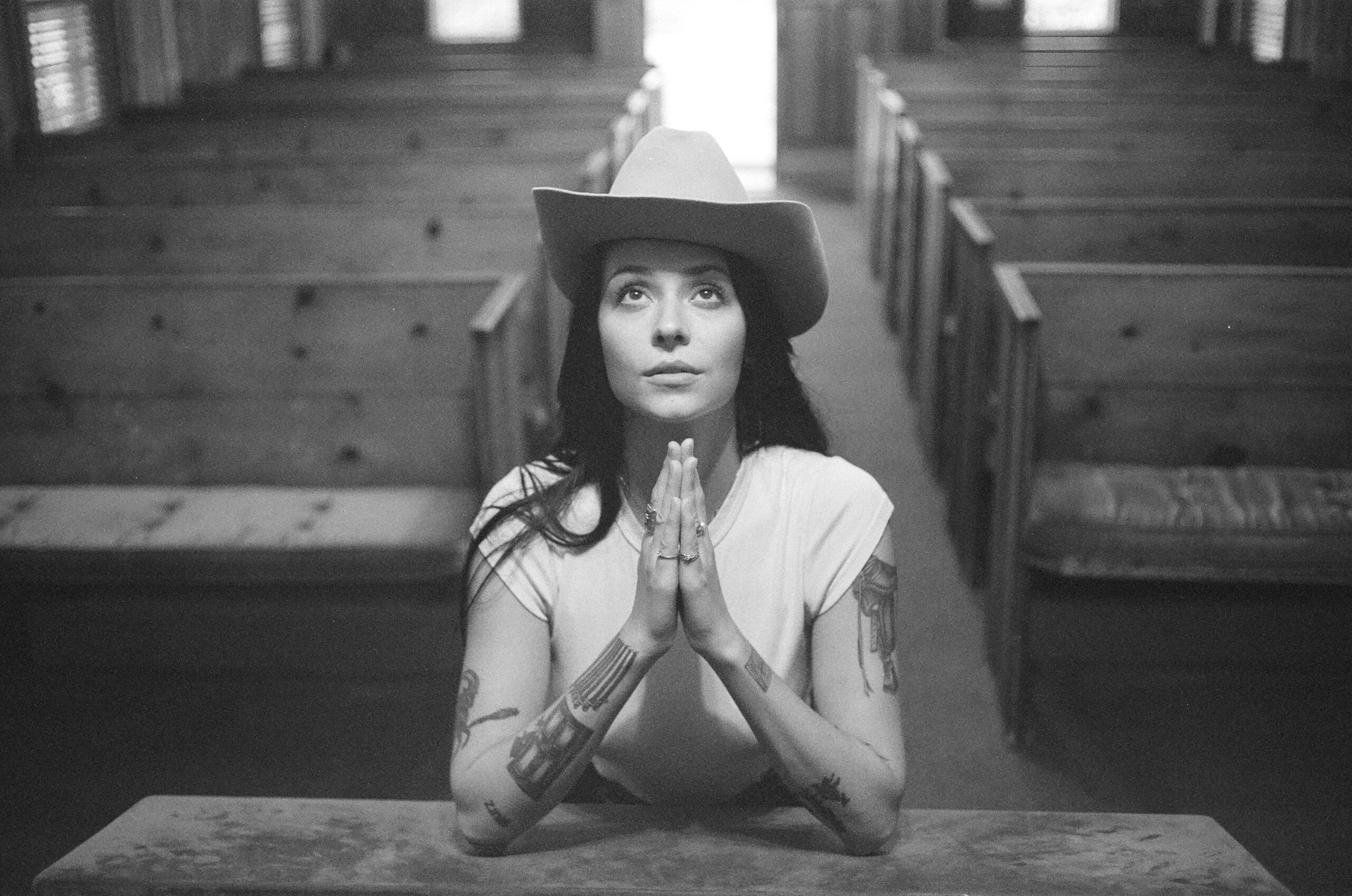
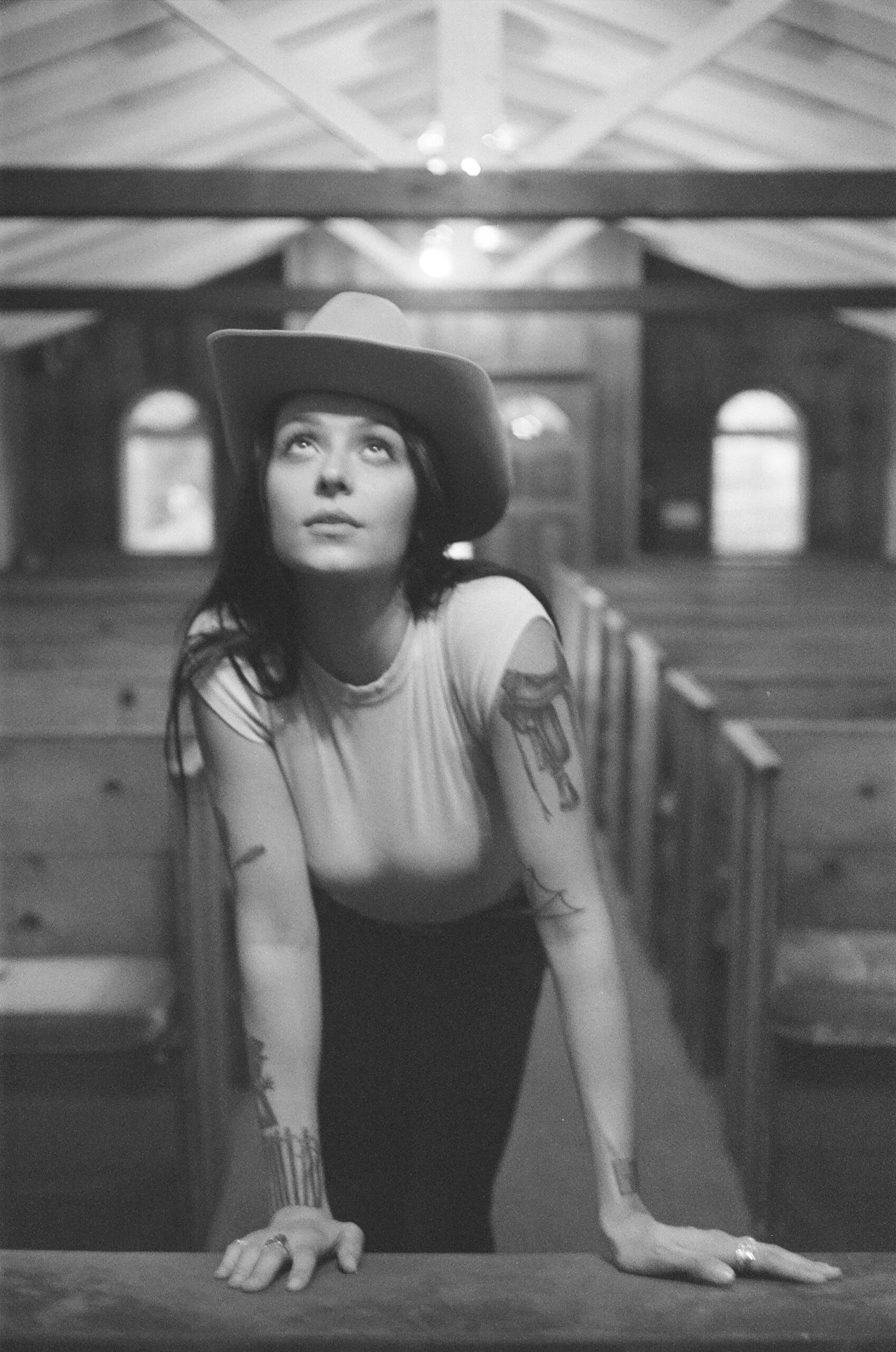
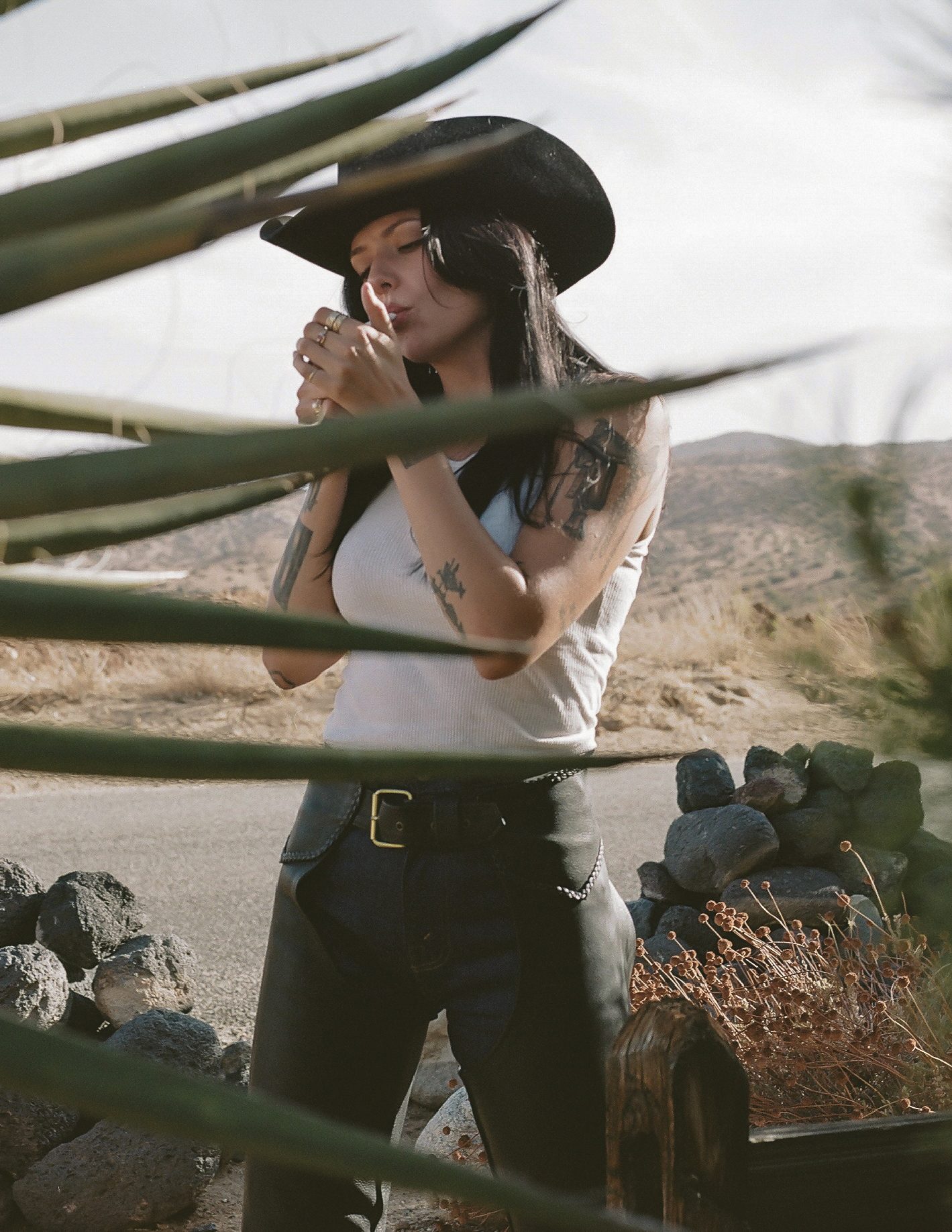
[The following are excerpts from Scout’s interview, which can be found in its entirety in AMERICAN VULGARIA Issue #2: out now]
…
RYAN SIMÓN: Is the Hollywood Dream—the whole, you know, Mulholland Drive Hollywood dream-reality thing—do you feel like that’s still alive there?
SCOUT DIXON: Uhm… I don’t know. Yes in that it’s full of delusion. LA definitely still has romance, but the old Hollywood allure really only exists anymore as a fantasy in your head. There is a darkness under the enchantment. It’s difficult to articulate and has to be experienced. I don’t think I participate that much. Not that I’m a complete recluse, but I’m not tapped into a scene—and well maybe [laughs] maybe I am more than I think. I like to think that I exist in my own sort of small niche little reality that’s not really part of a broader movement.
SIMÓN: I mean, sense of place has been totally dissolved into the internet at this point. We’re all members of the Global Village et cetera, and the stakes of having to join a local scene to make it just aren’t really there anymore. The thing now is to find a crew of homies online.
DIXON: It’s easy to feel isolated, even though everything is hyperconnected. I’d like to say, “Oh, I don’t participate in LA culture,” or whatever, but of course I do.
SIMÓN: Your album Ascetic Star does feel distinctly LA to me. You were talking about the darkness of LA—that undercurrent is in your music. Listening to your Tales From The Mall episode, I liked how you went into how sorrow and joy are two sides of the same coin when you brought up the depression identity stuff.
DIXON: Absolutely, that is true. I do think sorrow and joy are two sides of the same coin—you can’t have one without the other. That’s the balance of everything.
SIMÓN: I mean, that’s the core issue with the whole refinement/optimized performance thing we were talking about: it’s pure positivity—it measures everything in terms of whatever progressively positive value, while totally dismissing all the sorrow and tragedy and just the general melancholia inherent to living a good, fulfilling life. That sort of “positivity” also can’t account for the sadomasochistic paradoxes of finding pleasure in our own pain and misery, and all that.
DIXON: To bypass that is totally reductive to everything in the human experience. Those things are equally as valuable and beautiful—if not more. Not to overly romanticize it and be like, Oohh! I love sorrow and tragedy!! I think I was talking about this on Tales From The Mall—I’ve definitely spent a lot of my life doing that and probably wallowing more than I needed to, but that shit is important too and makes you who you are. And it is a vehicle for beauty.
SIMÓN: Yeah, identifying with depression—I think a lot of people go through that, and many of them stay stuck in the idea of themselves as a “depressed person” forever, but—
DIXON: It’s very easy to do.
SIMÓN: Yes, it’s definitely easy—but much of becoming a full-grown “mature” adult is having self-awareness and the self-responsibility to be honest with yourself, to be like, “Dude, you know what, I’m not actually depressed, this is just a Kurt Cobain aesthetic thing that I think is cool.” [Laughs] Because that kind of affected sadness sets you up as a sort of underdog. Everyone has their American Idol Sob Story—just as in those competition shows, it’s not enough for the contestants to be talented and cool and to win on those grounds. They have to emotionally manipulate everyone and themselves into treating their success as an artist as a sort of therapeutic step for them to overcome some past trauma, to quote-unquote “heal.” They’re always like, “Ooh I fuckin’… [laughs] I fuckin’ stubbed my toe once and when I cried I learned I could sing, I just sang through the pain hohhhmmn…”
DIXON: They’re like, “Yeah one day my dog ran away… and so anyways here’s Wonderwall.” I think that’s how I felt when I decided to stop identifying as a depressed person. And I say “decided to” because it truly was a decision.
SIMÓN: The average case of what goes by quote-unquote “depression,” I have to say—and not to dismiss anyone who is, you know, really going through it—but that sort of depression comes with being totally preoccupied with yourself. To get out of it, you have to earnestly find a way to get over yourself.
DIXON: Uh huh, there is a lot of ego involved, for sure. I think you always know the answer within yourself. You know what’s causing you pain. I spent a lot of time being depressed, and people would ask, you know, “What’s wrooong?” and you go, “Hm I don’t know, I’m just depressed,” but if they pry a little bit, you can zoom out and look at yourself and see here’s X, Y, Z reason why. You do know why. So if you decide to stop being a bitch, you can address those things and change them. And I know: not to be reductive to people’s “clinical experiences,” but there are steps you can take. To think that you are powerless is a very dangerous thing. It will lead you down a path that’s not fruitful.
DIXON: I think it can take artists a long time to find their voice, or to have a strong aesthetic identity. I got lucky and kind of had that immediately. Maybe I can attribute that to the skillset I’d had—or didn’t have, because it was something that was so new to me and didn’t come from a real technical style. Think of all the kickass musicians: a lot of them aren’t technically talented. [Laughs] You know? Like Joy Division. A lot of sick bands can hardly play their fucking instruments, and I think that’s part of the charm that allowed my record to have a strong aesthetic, because I was working with my limited palette. Not to be reductive to myself, but I think that is what allowed me to have a strong identity out the gates.
SIMÓN: You have the “New Promises” music video, too. Why’d you choose that one for video and not the others?
DIXON: I thought that that song was… When I was thinking of putting out a single for the record, I thought a single shouldn’t necessarily be the song that everyone’s going to like the most, but it should be most representative of the band. It’s the first introduction, you know? So, I kind of approached it like, Well, I think people will like this song maybe better than the 6-minute “Prince of Blue,” you know? But also it kind of has a little bit of everything that Low Pony is in it. I felt it was a good introduction—it has maybe more energy than the other songs. Maybe “Stupid On Your Stairs” has a little energy, too, but the music isn’t inherently energetic. It’s pretty downtempo and monotonous, and “New Promises” has all of the melancholy and the sadness, but it also has that sort of victorious, empowering thing about it as well.
SIMÓN: Absolutely. Talking about layering everything all at once—you have that going on visually in the music video. There’s you smoking your cig and the fire and all the carnival shit and the American flag…
DIXON: [Laughs] That’s just me on my couch downstairs. I have that American flag hanging up.
SIMÓN: I love that. That’s also just my personal preference and style, too: the collage-style layering and free association of images and ideas. It reminds me of how—and I was talking with the Agitator guys about this, like with the movie Tetsuo from the ‘80s—have you ever seen that?
DIXON: Nuh uh.
SIMÓN: It kicks ass—also, talking about drugs and all that shit: Tetsuo is the most methy movie of all time; it’s pure meth—but it’s one of those brilliant works of art where you can see and feel how handmade it is, it’s so noticeably hand-crafted that it makes you want to pick up a camera and do your own thing. The music video has that inspiring quality as well that had me like, I want to make my own music video right now.
DIXON: I wanted it to feel that way. I wanted it to feel tactile—you know, the cover of the record and all the supplemental imagery is wet-plate photography by my friend Erika Weitz. And so it feels real, you know? Especially now in the 2020s, where everything is digital or overprodu%4&!@##[CONNECTION ERROR]##$!&?%ant to feel very pure and like it was made with my hands and came from my heart—and it also just so happened I didn’t have a budget for a music video. [Laughs] So I just recorded myself ripping cigs on the couch and layered all that cool footage over it. There was a piece of plexiglass in front of me with green-screen paint on it, so when I’m swirling my hands and clearing the screen, that’s just green-screen paint. Comping the footage onto it created that sort of trippy multidimensional thing.
SIMÓN: Sick. Yeah, you’re playing with multiple media there. Half the fun of creating art or doing anything is just playing with the medium itself, you know, on the fly—it’s like, Well, fuck, we’ve got a camera and a couch and paint, let’s see what trippy cool shit we can do with this.
DIXON: Yeah, it’s let’s fuck around. And that’s how I approached even the making of the record, too: just letting it be a process of discovery for myself as well. Obviously, you want to have some level of intention. In general, I’m an intentional person, but there’s a difference between intention and over-exercised control, so I wanted to allow myself to be in a sort of gnosis state where I can channel all the things that I’m trying to tell myself. Just let it flow through me like a channel and not let it be self-important. That’s how it felt writing the songs—every song that came out as a fully realized song felt like an exorcism, like I was channeling something and it moved through me like a demon.
SIMÓN: Art-making as exorcism is a tough thing for many people, because when you really commit to that, you go to some really dark places. You know? You are exorcising demons—and maybe some angels too—but there’s shit stirring inside you that you’ve avoided and thus can’t directly define or articulate, so you have to rely on the sort of abstract indirectness of art to face yourself.
DIXON: It’s like this energy ruminating inside of you that will stagnate if you don’t let it out, so you have to open the portal and vomit.
[…to be continued…]
Read the full Scout Dixon Interview in AMERICAN VULGARIA Magazine Issue #2: BUY NOW
More Scout Dixon: @killscout & @low__pony


